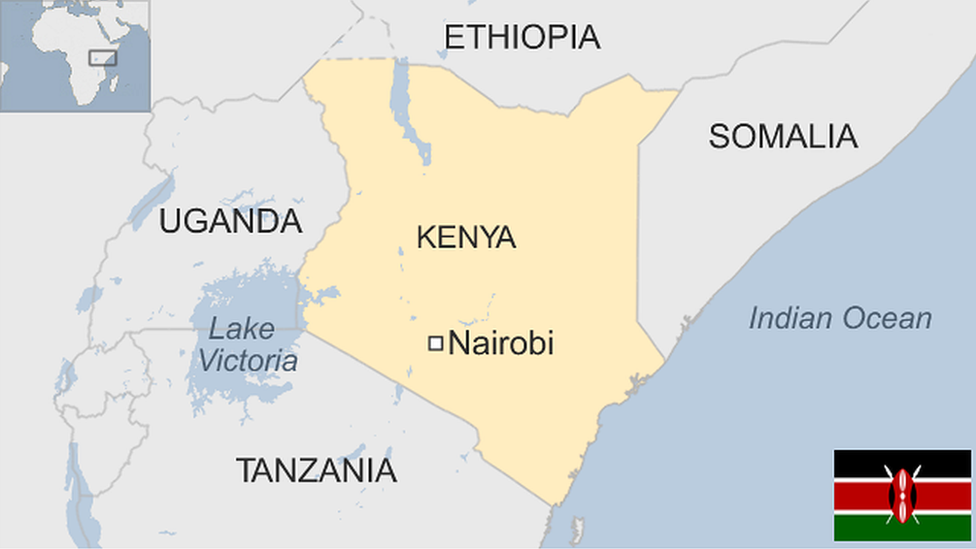Tackling the radical Muslim youth of Mombasa
- Published
The BBC'S Emmanuel Igunza reports from the scene of the raid
The police came at dawn on Monday.
They swept into the Musa and Sakina mosques here in the Kenyan city of Mombasa, searching for incriminating material and arresting many of those they found.
Two days later, I witnessed officers closing a large padlock on the gates of the Swafaa mosque, as it became the third mosque accused of links with Islamist militants to be shut down.
Yellow police tape with the words "Crime Scene" is now wrapped around the entrances of all three places of worship.
This all follows an announcement in September when, in a rural town in central Kenya, the head of the Criminal Investigation Department, Muhoro Ndegwa, said the government would shut down mosques associated with Muslim radicals.
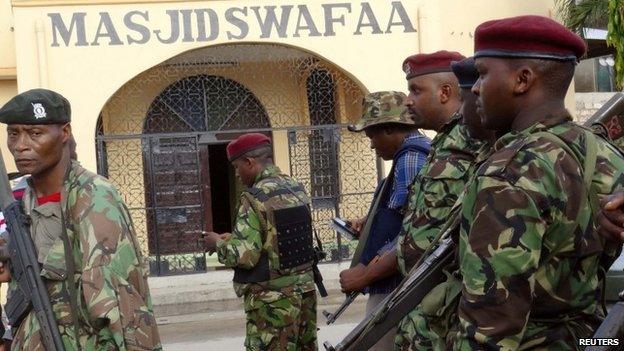
Armed police stand guard outside the closed Swafaa mosque
Back then no-one took the announcement seriously. Not even Muslim leaders.
Some dared him to act on his words. A local newspaper tucked a short story into its inside pages.
And that was about it.
But now this.
A huge contingent of heavily armed police stands guard, 24 hours a day, outside the Musa, Sakina and Swafaa mosques.
Worshippers have been told to go elsewhere.
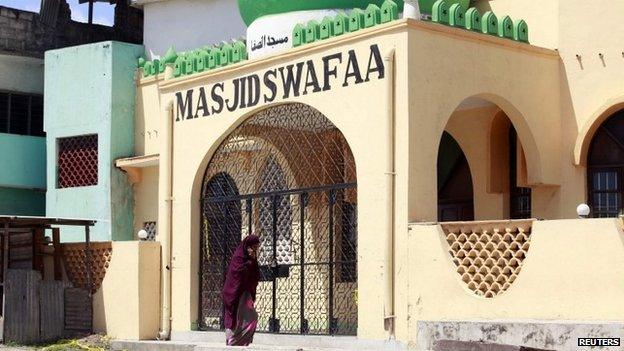
The gates of the Swafaa mosque have now been shut with a large padlock
Surprisingly, police have met little direct resistance from the radical youth, or the Muslim leadership in Mombasa. But at least three people were killed when angry Muslim youths went on a rampage after the police raids, attacking civilians with machetes.
Police now say they have their eyes set on a fourth mosque.
They say their actions are aimed at restoring peace in Mombasa, but the effect has been to unsettle the general public. There is an air of uncertainty and tension here.
'Too little, too late'
Locals are unsure how and when the radicals will react. The anger and motivation is already there. And there is a precedent.
In February, police raided the Musa mosque, once controlled by radical cleric Aboud Rogo, who was killed in August 2012.
Violent protests followed that raid. Muslim youths engaged police in running battles all day, killing one officer by slitting his throat.
Memories of that day have stayed with many people here.
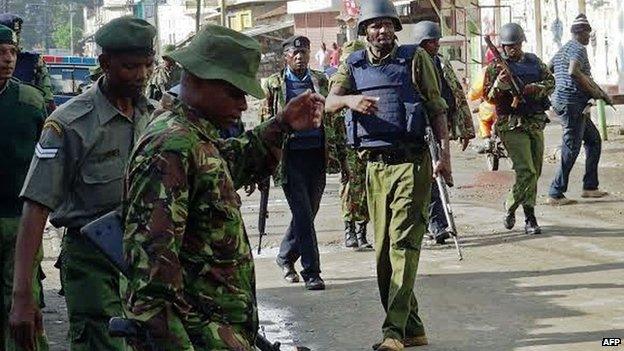
There is a heavy security force presence in the streets around the mosques
From my conversations with local journalists, politicians, businessmen and ordinary residents, there is a feeling that the police action this week, though bold, may be too little too late for the local economy.
Tourist numbers - already depressed - have taken a big hit because of rising insecurity and the threat of militant attacks, which are very real here.
Local businesses are suffering and industry leaders have been going from meeting to meeting trying to find ways of wooing back tourists.
With no clear answers to hand, people here are resigned to the fact that things will probably get worse in Mombasa, before they get better.
- Published26 June 2014
- Published29 September 2013
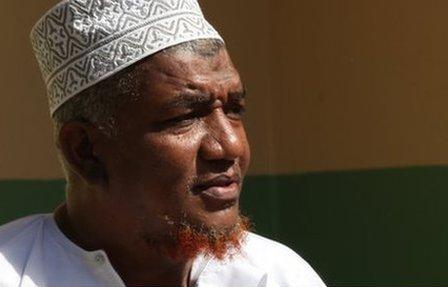
- Published9 April 2014
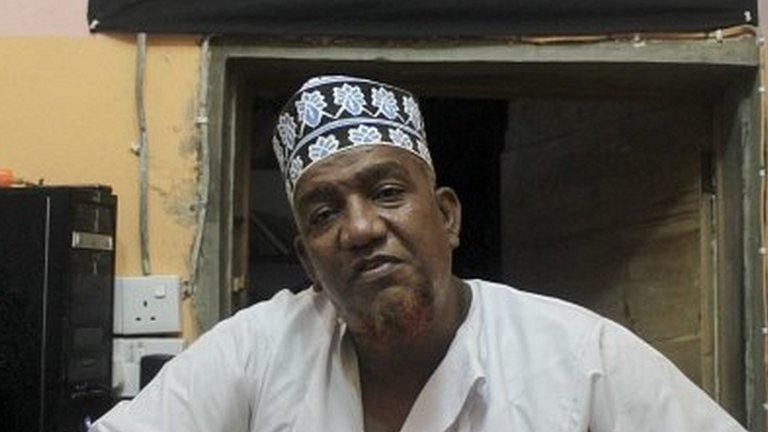
- Published19 December 2013
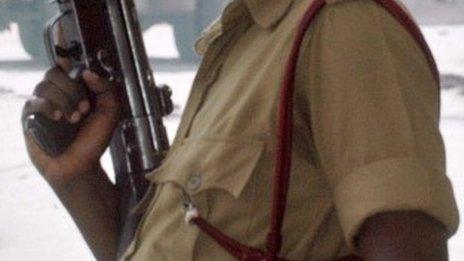
- Published30 September 2013
- Published22 December 2017
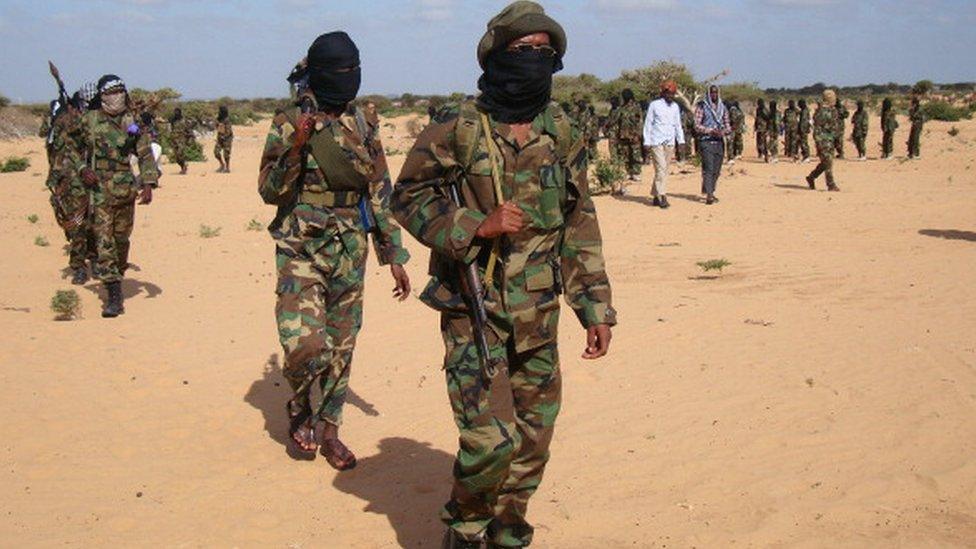
- Published4 July 2023
